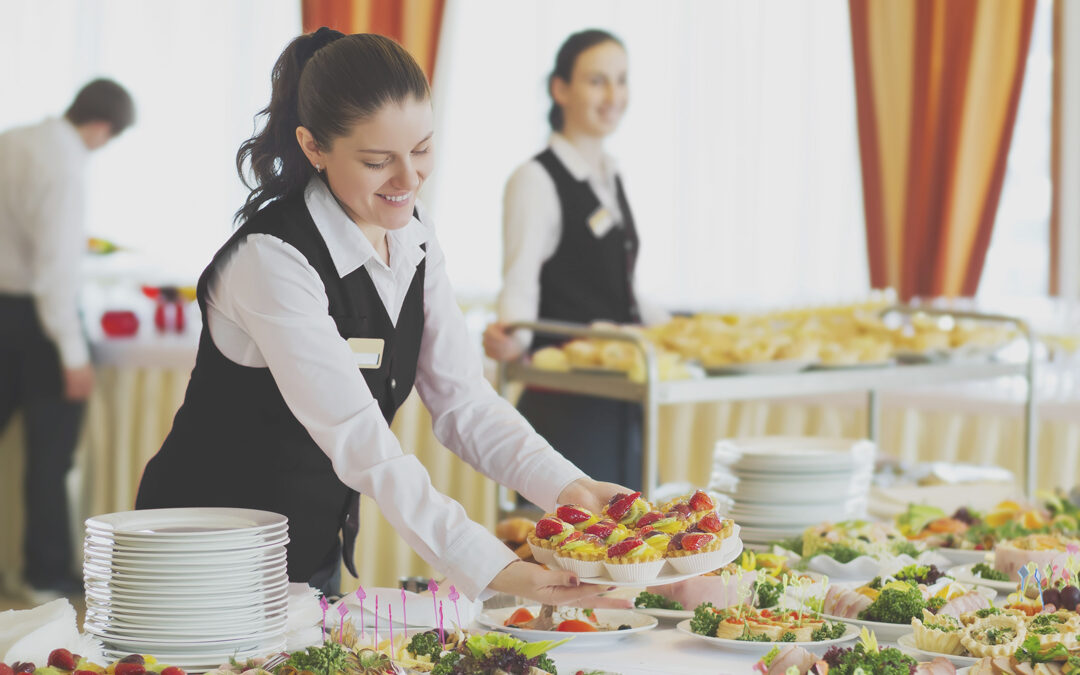Proximity
Delivery has made leaps and bounds. Amazon can deliver food in an hour in some locations but with a caterer, the distance of their kitchen from your event is a major consideration if they’re not preparing food at your location. Large distances from their kitchen to your tables can mean cold food and additional expense. Check if they have a fee for going across town. This is essential to your event budget.
Additional Services
It’s important to be clear on just what the caterer will do. Are they supplying the linens, serving dishes, and wait staff? Do they handle clean up? Pricing varies a lot based on services so it’s important to understand what’s entailed. Your venue might handle some of these things as well so make sure everything required is made clear at the beginning.
Some caterers also provide additional services like decorations, table lighting, flowers, and other rentals like tables. If you need any of these services, you’ll often save money if they’re booked as a package.
Venue’s Preferred Vendor
If you’re short on time and want a caterer that has already been vetted, ask your venue if they have a preferred list of caterers. Before you sign a contract with the caterer, make sure you find out from the venue how they add people to that list. Are they caterers that have worked the venue with high marks? Or is it simply open to those who ask? This is a big difference in assessing quality.
Pay a Visit
In the section above, the importance of a tasting was mentioned. The tasting serves two points: to ensure the food is up to your standard and to get to know the caterer. But a casual meeting is not the ideal way to see them in action. If possible, find out where their next event is and stop by. Don’t crash it; just see how things are going.
Are things frantic and chaotic or is everything happening with only the usual amount of stress? Yes, those are kind of the same thing but it’s all in how the caterer and staff are handling it.







Recent Comments